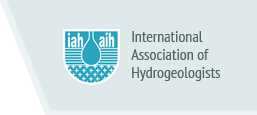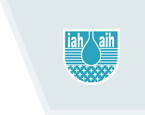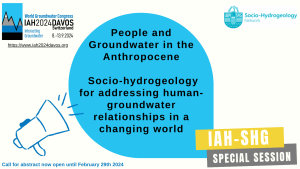Upcoming Events
International Day of Women and Girls in (Geo)Science
Established in 2015 by the United Nations General Assembly, the International Day of Women and Girls in Science is celebrated every year on 11 February to draw attention to the biases and gender stereotypes that steer girls and women away from STEM (Science, Technology, Engineering, Mathematics) disciplines. The aim is to provide full and equal access to science for all girls and women, to further achieve gender equality.
Movie Screening, University of Pisa, Italy. 8th February 2024, 2-4 pm.
“Pani Check- The Sisterhood of Water”
Rekha Devi and Zeenat Begum have a problem: the little water in their community is polluted. German hydrogeologist Theresa Frommen is asked to help. But can illiterate women learn the scientist’s complicated methods? And is she prepared to get involved in the social structures of an Indian community?
The 52-minutes documentary “Pani Check – The Sisterhood of Water” shows the process of a groundbreaking hydrogeological case study. The involvement of those concerned in the model project represents a paradigm shift in scientific research. The film shows how illiterate women learn how to use scientific methods to take ownership of the water problems in their community. It shows how the scientist Theresa meets the challenges of working in the social structures of the Indian communities. And we can see what happens when an innovative and well-intentioned research idea bumps into the realities of a poor community who is asking for quick visible results …
Director: Katalin Ambrus
More Infos: Viviana Re, University of Pisa
IAH 2024
IAH-SHG successfully submitted a session proposal to IAH 2024 in Davos, Switzerland.
The session People and Groundwater in the Anthropocene – Socio-hydrogeology for addressing human-groundwater relationships in a changing world aims at exploring and discussing connections between societies and groundwater in a world undergoing rapid change. Contributions from diverse fields and disciplines are welcome, including but not limited to:
(1) Examples of participatory monitoring, stakeholder engagement, public participation and gender-disaggregated data collection, citizen science, involvement of citizens and local populations in groundwater projects and/or in the design of solutions;
(2) Integration of multiple knowledge systems (e.g., Indigenous knowledge) within quantitative and qualitative hydrogeological studies;
(3) Social and political approaches to groundwater resources research;
(4) Groundwater geo-ethics;
(5) International/transboundary conflicts;
(6) Integration of behavioral, experiential, or knowledge-based data in hydrogeological assessments; and
(7) Educational goals for future socio-hydrogeologists
The session is proposed by
Re, Viviana; University of Pisa, Italy
Haley, Adrien; University of Cardiff, UK
Boumaiza, Lamine; University of Waterloo, Canada
Huggins, Xander; University of Victoria, Canada
Frommen, Theresa; Hessian Agency for Nature Conservation, Environment and Geology, Germany
For more information please visit the Congress website: https://www.iah2024davos.org/parallel-2/
Abstract due date: February 29, 2024
EGU 2024
Our EDIA WG submitted a abstract to the EGU 2024 on Promoting and Supporting Equity, Diversity, Inclusion, and Accessibility: A Collaborative Approach in the Hydrogeological Community and Beyond. Stay tuned for updates!





